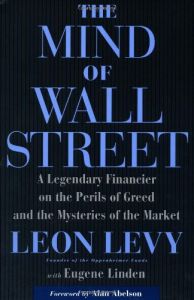
The Mind of Wall Street
A Legendary Financier on the Perils of Greed and the Mysteries of the Market
Recommendation
The late, legendary Wall Street investor Leon Levy offers a glimpse into his financial mind in this easily digested work, which is part memoir and part study of investor psychology. Writing with journalist Eugene Linden, he persuasively argues that investors’ moodiness often drives the market as much as any fundamentals. Unlike many Wall Street investment strategies, Levy’s approach was long-term. And as this book shows, Levy’s ego was refreshingly understated. Yet his modesty proves this memoir’s biggest weakness. He declines to criticize his rivals and walks us through his triumphs in only a cursory way. At the same time that he’s leaving juicy details out of his memoir, he also gives short shrift to his study of investor psychology. Still, the biggest criticism of this book is that it should have been longer. getAbstract.com recommends this memoir to investors interested in learning from a master.
Summary
About the Authors
The late Leon Levy was a founder of Oppenheimer Mutual Funds and Odyssey Partners and founded the Jerome Levy Institute for Economic Research at Bard College. Levy began his career on Wall Street in 1948. He died in 2003. Eugene Linden is a journalist who has contributed to TIME magazine.







Comment on this summary